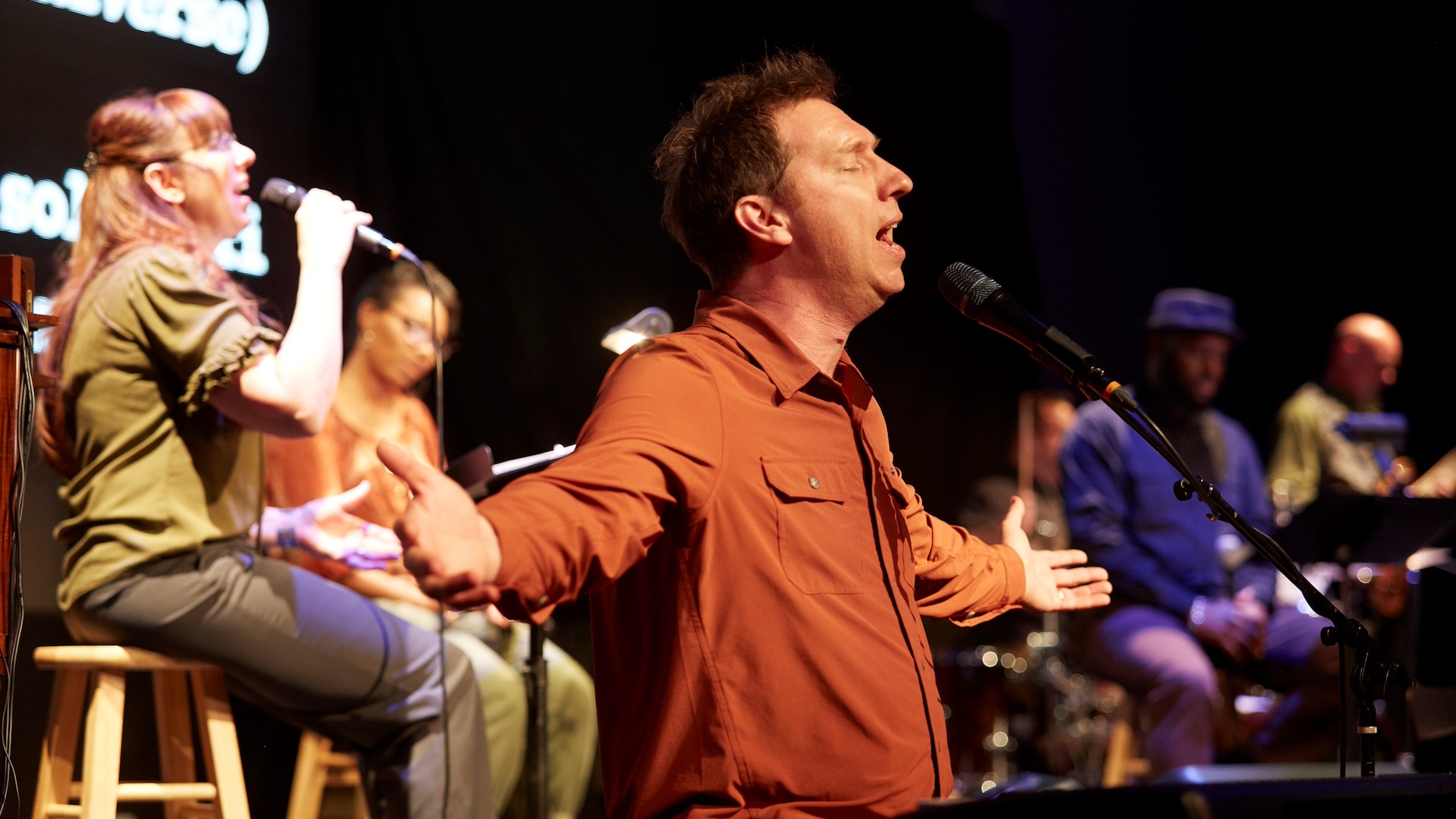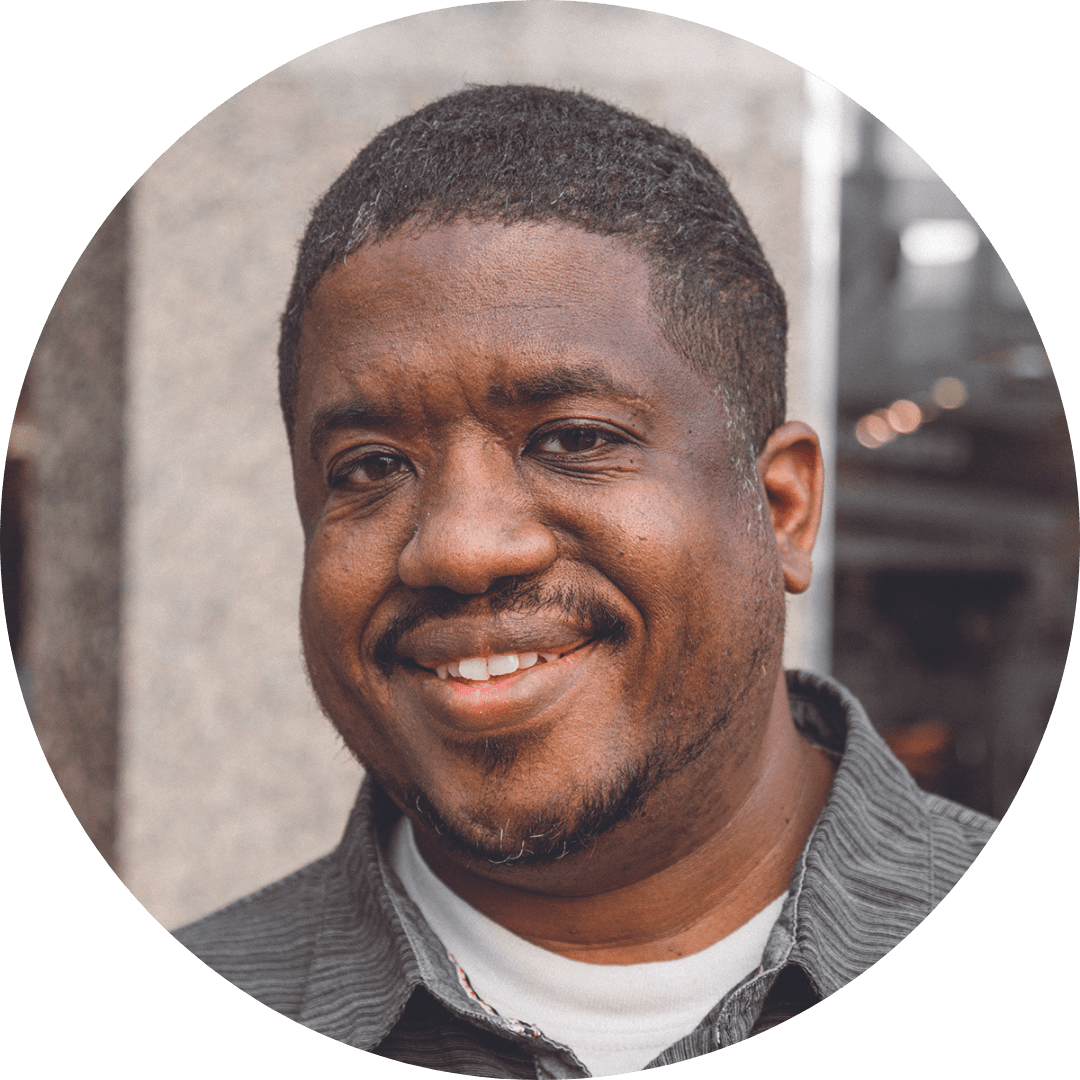Like many worshiping musicians, Dave LeMieux is a storyteller. As a worship leader at Montecito Covenant Church in southern California, he’s well acquainted with how stories can drive our understanding of Scripture. He is also the executive director of More than Music, a nonprofit that engages in music-based missions. He and his team create multimedia collaborations to tell biblical narratives. This interview has been edited for length and clarity.
Can you tell us how you define “music-based missions”?
More Than Music exists to challenge audiences to listen for and respond to the unique call upon their lives to serve others for the betterment of their communities—using music presented in ensemble community as both model and catalyst. We regularly tour, looking for opportunities where meaningful cultural exchange can happen through what we call “Sound Diplomacy.”
Most of the music the rest of the world considers “American” really came up through the brokenness of our country. The slave trade and African American spirituals birthed so many genres of American music. Without the brokenness and the beginnings of our country, that music would not exist in its current form. So we see an appetite for that in the rest of the world.
We received an invitation in 2010 to go to the Siberian side of Russia. A US State department official working in a consulate in Yekaterinburg wanted to invite a gospel choir to that city, because he figured that people in Siberia had never heard that kind of music in person before. Once we started talking, he mentioned an explosion of jazz in Europe that was beginning to spread into Asia and Russia. He attributed it to the fact that, at least in Russia, they were experiencing the first post-Communist generation. Classical musicians who grew up playing Rachmaninoff were starting to explore their new perceived musical and cultural freedom.
We were a group that had both jazz musicians and gospel singers, and our visit there was the beginning of our ministry. It was obvious as soon as we stepped off of the plane in Yekaterinburg that we were onto something, that there was an appetite for American music, and that meant an entry point to sing gospel music specifically.
One highlight was in 2018 when the State Department flew us to Israel and set up shows all over with Jewish and Arab students in order to celebrate the life and legacy of Dr. Martin Luther King Jr. It was around the fiftieth anniversary of his assassination, and there were celebrations happening all over the US, and we got to do something similar in Israel. It was amazing.
It’s fascinating to see how music crosses cultural barriers and can touch people in places and ways we don’t expect. As someone who’s served as a pastor and has done work in the sphere of antiracism, I’m keenly aware of the rising white nationalism in American Christianity. So it’s important to me that we disentangle our love and allegiance to the United States from our love and allegiance to Jesus. Your work seems the opposite of that. It’s like your connection to the US is what makes it possible to share the gospel, instead of the other way around.
Our work is invitation-based. Sometimes Americans have this colonial attitude where we have to export everything, but these invitations are coming from people who want to experience and explore the music.
We try to make sure we’re going in with a servant’s heart and that our mission and their request really line up. That’s why Russia was so amazing. They wanted us to do jazz workshops with their students, they wanted us to appear on television programs and talk about the roots of gospel music, blues, and R&B.
We visited orphanages in Russia and gave away instruments. There are so many different ways to be musical ambassadors. That has kept us in a frame of mind where we’re looking to see where God is stirring people, whether they know they’re being stirred by God or not.
How has your mission changed now?
We’ve been sharing our Dr. King program for about 20 years. It’s an hour-long presentation using multimedia, narration, and music to drive the story forward. We started asking ourselves, “What else can we do with this format?” At the time, the typical church format of a block of music, followed by a block of talking—we felt like we’d taken that format as far as we could, creatively speaking. But our format in schools was different. The narratives were shorter, and the songs were interspersed throughout.
So we decided to try that in churches. We wanted to address biblical illiteracy head-on by creating songs and stories to express the biblical narrative, starting in Genesis. So it’s basically like our MLK program, except, like, a hundred of them. It’s a project that’s probably going to take us the rest of our lives.
Are you writing all original music for this, or trying to adapt existing songs?
Mostly all original music. We are turning these into videos. We can weave in a few public-domain songs, but for the most part, it’s a huge songwriting project. We’re deep into it now, but it’ll be a long time before it’s ever finished.
In October we did a few of these presentations at Westmont College and then at Montecito Covenant. So students at Westmont could see “Moses Part Two” at chapel on Friday and then “Part Three” at church on Sunday morning. This is a first for us because normally we’re doing these shows at jazz clubs or in theaters, or in the case of our Dr. King program, in schools. So now we get to see how well this format works on Sundays.
One of the things that’s different is how much Scripture is covered. In most of the churches I’ve been a part of, if the pastor is doing expository preaching, you’ll get at most a chapter per week, or maybe just a few verses. But we’re covering bigger chunks of Scripture. We tried to figure out how much can we cover without losing or confusing people, and we’ve got it dialed into about seven chapters. The songs become the exposition, and because we’ve traveled a lot to Israel and Jordan and other places in the Holy Land, we’ve been able to film videos there. It’s called Blue Gospel Scripts, and you can see examples on our YouTube channel.
For example, we did a series on the Gospels, and instead of creating a show for each book, we did ten episodes and each one had a Matthew, Mark, Luke, and John onstage as first-person narrators. Then we had a commentator and a historian. So several voices are chiming in to tell the story of Jesus over about ten hours. We did it at a jazz club once a month, and after the show was over, people could stick around and have conversations about what they saw. It’s a really interesting way to digest Scripture.














